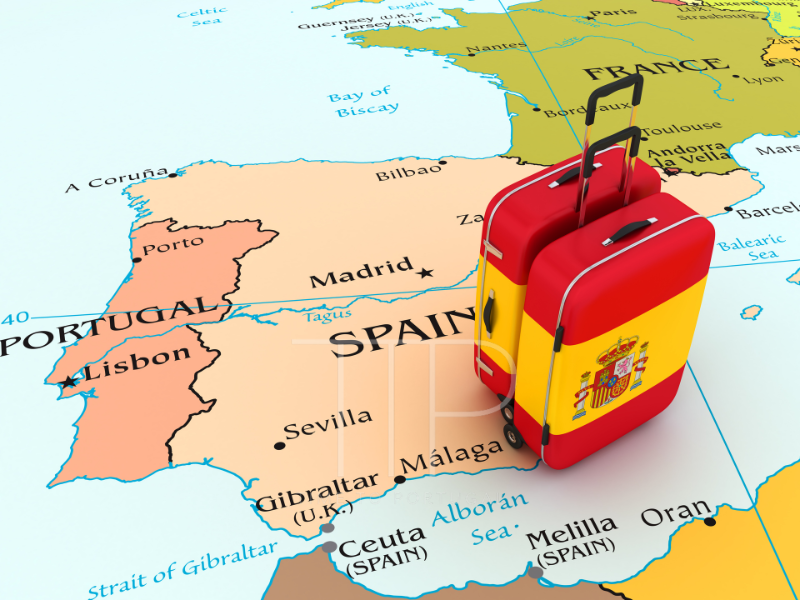The aim is to “realize that things can also happen in this type of territory”.
Portugal and Spain have joined forces to hold the 1st World Inland Tourism Congress in Cáceres, from November 26 to 28, to eliminate borders and outline development strategies for both territories.
At a presentation of the congress to the media in Lisbon, the president of the Iberian Inland Tourism Association (AITI), Miguel Martins, summed up the main objective of the meeting to be held in the Spanish city in the Extremadura region: “to realize that things can also happen in this type of territory”.
To do this, she said, “sometimes we need to hear other perspectives” on how to approach the challenges facing tourism in inland areas, such as mobility and accessibility.
“The congress is going to be a meeting point, with special attention to the central zone and Extremadura, […] to address a future perspective for this territory,” said Esther Gutiérrez, vice-president of the Cáceres regional government.
The Spanish official pointed out that although the two Iberian Peninsula countries share territory, this in itself means nothing if there is no development project. Also present at the presentation, the Director General of Tourism for Extremadura, Jesús Viñuales, highlighted the creation “of a joint destination, which is A Raia”.
For the vice-president of Turismo Centro de Portugal, Anabela Freitas, the more than 1,200 kilometers of border between Portugal and Spain are no more than an administrative border. “It’s much more that unites us than separates us,” she stressed.
The head of Turismo Centro pointed out that one of the challenges for inland tourism is the coordination between the various entities with tourism responsibilities, such as the Intermunicipal Communities, which receive European funds and want to enter this sector.
In these cases, Anabela Freitas pointed out, the territorial brand is sometimes confused with tourism promotion. Therefore, one of the aims of the meeting in Cáceres is precisely to strengthen cooperation between public and private entities.
“The private sector has to make its own way, but before spending thousands of euros on a project, ask us what we think,” said the president of AITI.
The congress has two guest destinations — Idanha-a-Nova (Castelo Branco) and Cáceres, and will be attended by 35 universities and 29 exhibitors. During the meeting, a tourism product that brings the two regions together will be presented, related to the TV series Game of Thrones, filmed in the Portuguese village of Monsanto and in various locations in Spain.
The congress will also be attended by the general manager of Flixbus for Portugal and Spain, Pablo Pastega, who will discuss one of the main themes, which is mobility.
According to AITI, the aim is to have a road passenger link between Castelo Branco and Cáceres at least twice a week.
Portugal vs Spain: which Iberian dream is right for you? – Lonely Planet


[…] Portugal and Spain want to eliminate borders to promote inland tourism […]